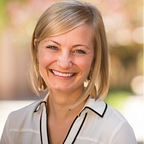Thanks, Garreth. I also just finished Dintersmith’s book for our monthly book club (which you should totally join!…next up for July is Dewey…). I enjoyed it though was a bit bored by the end. I appreciated it wasn’t all negative, promoted some new, human-centered practices, and that he frequently reiterated his respect for teachers.
My sense of him as a person aligns with yours — he seems sincere and kind and truly interested in the well-being of children and teachers. Though he also has a whole marketing team behind him so who knows. What School Could Be had some great vignettes, which I think are useful to promote the idea that there are different ways change can look, and the hope that change is possible, and it had a few useful and pithy insights (e.g. “Today, the purpose of U.S. education is to rank human potential, not to develop it” — i.e. (in the language of my four purposes framework) it’s organized for individual efficiency not individual possibility. I totally agree. And, “Education should prepare our children for life, but we have it backward. We prepare children’s lives for education.”).
My read of his stance is that he hasn’t properly worked through the relationship and mechanisms between what happens in school and the kinds of macro-level socio-economic outcomes he wants, so he often conflates social efficiency, individual efficiency, and individual possibility, without even realizing it. I believe he wants the best for kids, but if he keeps promoting the social efficiency frame as the proper aim for schooling (as is very clear in MLTS, and slightly less clear but very present in WSCB), it won’t result in any lasting improvements aligned with fostering whole humans and a democratic society.
